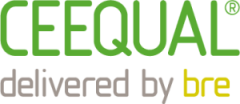
The Climate Bonds Standard is an environmental standard to certify bonds that prioritize projects addressing climate change and to support investors in aligning investments decisions with climate goals. The tool is made up of two parts; (1) the parent standard detailing management and reporting processes and (2) a suite of sector criteria detailing the requirements to be eligible for certification. Based on independent verification reports, the tool allows to certify bonds already prior to issuance, requiring follow through for post-issuance certification. Issuers must report at least annually on the projects and assets funded by the bond, their eligibility and use of proceeds.
Lifecycle Phase(s): FinanceDevelopers decide how to pay for their project.
Type(s) of Tool: StandardsProvide information about the compliance of projects or assets with a given set of sustainability criteria.


